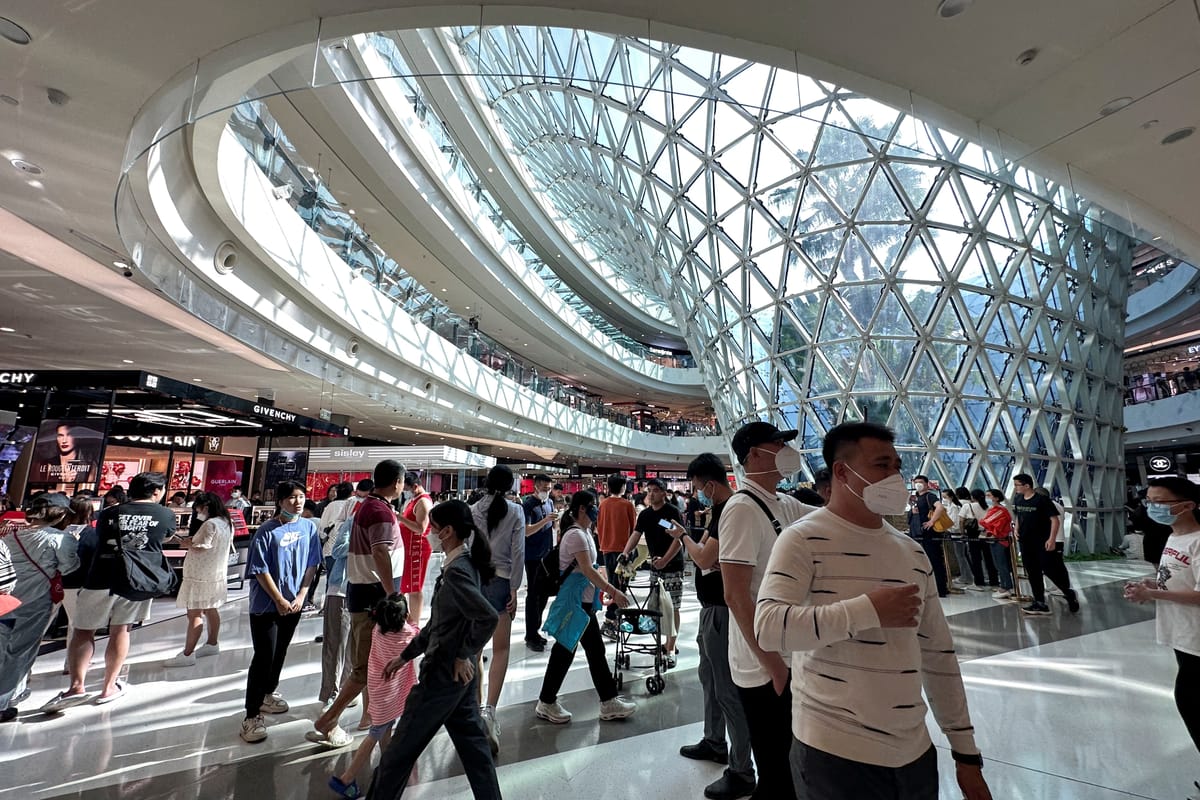China’s consumer prices are up, breaking a months-long streak of deflation
China's consumer prices went up in February, marking the first increase since August.

A few minutes every morning is all you need.
Stay up to date on the world's Headlines and Human Stories. It's fun, it's factual, it's fluff-free.
The backstory: China, home to about 1.4 billion people, is facing some economic hurdles, especially in the aftermath of COVID. Things like an unpredictable property market, soaring debt, slow global economic growth and tensions on the world stage have all piled on the pressure. The property sector, in particular, is causing concern because it's a big chunk of China's GDP, making up roughly 17-29%. Big players like Evergrande are drowning in debt, with Evergrande even being told to sell off assets just last month. On top of that, there's the issue of high youth unemployment, declining exports and increasing local government debt.
Last summer, prices in China took a nosedive, leading to deflation, which is when general prices in an economy start to drop. China's producer price index prices dipped by 2.5% in January, following a 2.7% decrease in December. Consumer prices also took a hit in January, marking the biggest drop since 2009. To tackle these issues, China is ramping up efforts to boost its economy.
More recently: At China's "Two Sessions," a key event for shaping national policies, the country's leaders have rolled out fresh measures to support the economy. Beijing set a goal for the economy to grow by about 5% this year. To reach this target, officials announced plans to issue 1 trillion yuan (US$139 billion) in long-term special government bonds and tap into leftover funds from the previous year. The nation also wants to keep inflation at 3%.
The development: China's consumer prices went up in February, marking the first increase since August. The consumer price index, which measures how much things cost for people, rose by 0.7% compared to the previous year. But prices for factory-made goods continued to fall, dropping by 2.7%. This is the longest period of decline since 2016.
One reason for this improvement is that more people bought things during the Lunar New Year holiday. Official data shows a jump in domestic tourism, with revenues rising by 47.3% compared to the year before the pandemic. There were also many people traveling within China during the extended holiday, visiting tourist spots all over the country. Government stats also show that holiday spending on tourism went up by 7.7% and domestic trips increased by 19% compared to the 2019 holiday.
Key comments:
"I think it is too early to conclude that deflation in China is over," said Zhang Zhiwei, president and chief economist at Pinpoint Asset Management. "Domestic demand is still quite weak. It takes time for the fiscal boost to be transmitted to the economy and help domestic demand to recover."
"We only expect a modest recovery in CPI and PPI inflation despite the CPI inflation target of 3% and a deeper property downturn may pose greater deflationary risk," said economists at UBS in a research note this month.




Comments ()